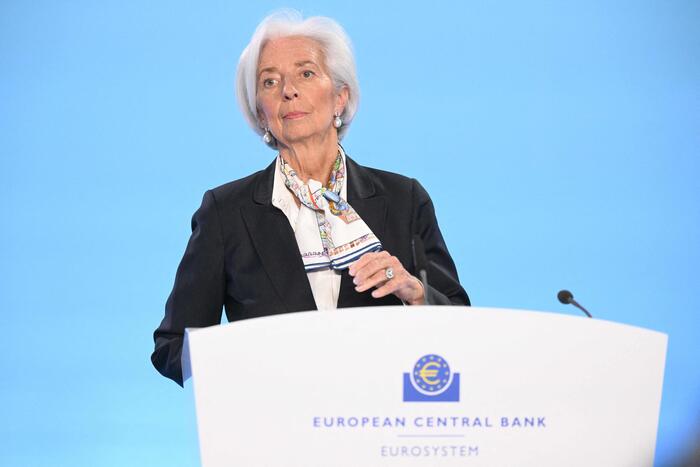After a steep decline, Mexico's economy is picking up at a slow and moderate pace due to the momentum of its neighboring country and main trading partner, the United States.
There are at least three million jobs to recover.
Inflation is on the rise.
Revenues and public finances weaken.
Meanwhile, the dollars sent by families abroad continue to break records and manufacturing has brought an important flow of resources, although not to the entire country equally.
"How is Mexico?
Well, breathing, thanks to the oxygen that the United States is injecting us, ”says Sofía Ramírez, economist and director of ¿México Como Vamos?
(MCV), a non-profit research center.
Given the lack of direct transfers from the Government to those who lost their jobs due to forced confinements so far in the pandemic, it has been the US economic stimulus programs that have directly or indirectly put resources in the pockets of some Mexicans.
"I think we are in a moment of relative improvement, compared to how it was a couple of months ago," says Ramírez.
In its most recent report, Banco de México improved growth prospects to a 4.8% increase in gross domestic product (GDP) expected this year, above the 3.3% previously estimated.
The forecasts improved, the institution said, because the recovery at the end of 2020 was greater than expected and because a stronger boost in the US economy is expected.
This week, the Congress of that country approved a historic package of 1.9 trillion dollars in federal spending to help the most vulnerable families, as well as to boost the industry.
Mexicans will not be able to take back the reins of their production completely until between 70 and 80 million people are vaccinated, said the Secretary of the Treasury, Arturo Herrera, on Wednesday.
"The vaccine will be the best for health, but also for economic activity," he said at an official event.
So far, Mexico has vaccinated 3.4 million inhabitants.
Welcome remittances
It has been remittances, remittances from relatives of Mexican origin primarily in the United States, that have offered millions of Mexicans an income to cope with this economic crisis - the hardest since the Great Depression in the 1930s. Despite the confinements Intermittent in the neighboring country, remittances reached 3,298 million dollars in January, a growth of 26% compared to the same month last year.
For their part, those who depend on manufacturing have recovered their income, derived largely from consumption in the US and Canada.
Many factories and automakers in Mexico are part of the global supply chains that exploit both countries, whose free trade with Mexico is outlined in the T-MEC, the treaty agreed two years ago.
Recent data from the National Institute of Geography and Statistics (Inegi) shows that, for November, manufacturing activity in 17 States of the Republic exceeded the levels of the previous year, while in 15 States the activity fell.
Manufacturing contributes a fifth of GDP to the country.
"Only last year 3.25 million jobs were lost in net balance," says Ramírez.
In the most critical period of lockdown in 2020 - between May and July - there was a loss of 12 million jobs.
"The recovery has been slow, it has not been homogeneous and, of course, the informal sector is the most affected," says the specialist.
According to an analysis of his organization, almost five million people fell into a situation of poverty, between the end of 2019 and 2020.
Inflation goes up
In addition, making the situation of families even more difficult, the cost of goods is increasing.
In its most recent forecast for the country released on Wednesday, Bank of America said it expects inflation to approach 5% in April, above Bank of Mexico's target range of 3% plus or minus one percentage point.
MCV, for its part, calculated that in the last quarter of 2020, almost 50% of the rural population and 38% of the population in cities did not have enough income to buy the basic food basket, a measure that includes 30 necessary foods for a person to meet their basic energy needs.
The financial system has also suffered from the disaster that the pandemic has been.
According to an analysis by Franklin Templeton, an international investment fund, Mexico has lost 350,000 million pesos (17,000 million dollars) of foreign capital since the pandemic began, 56,000 million pesos (2,700 million dollars) of these have been lost so far this year.
The capital outflow is not only derived from the drop in activity in the country, it is also the result of proposals from the federal government or the party of President Andrés Manuel López Obrador.
At the end of 2021, an initiative sent by the Executive to Congress, which prohibits subcontracting or
outsourcing
, was criticized by analysts and businessmen, as it seeks to criminalize the use of these practices with prison.
The initiative has not yet been voted on in the Mexican Congress.
In addition, the president has tried, in different ways, to limit the participation of private companies in the energy sector to guarantee the monopoly of state companies - Petroleos Mexicanos and the Federal Electricity Commission - reversing a constitutional reform drawn up in the Administration. above and that opened the sector for the first time in more than 70 years.
His most recent initiative, an amendment to the Electricity Industry Law, was approved in Congress, but was suspended in court on Thursday.
"The climate of confidence that a government should or could give investors is very important," says Ramírez.
"We have a problem with investment that has been registering declines since the beginning of 2019."
Gross fixed investment, on which economic growth largely depends, accumulated 23 consecutive months with negative annual rates.
Investment in construction is the most affected.
Inversion in free fall
Government spending has not made up for the lack of confidence in the private sector.
In January of this year, the Administration spent 25% less on infrastructure than in the same month last year.
According to an analysis by the Mexican firm Soluciones Financieras Gamma, the federal government is spending more on paying interest on its debt than on new infrastructure for the country.
“That private investment falls obviously has to do with confidence, but that public investment falls, it seems rather that it is a managerial determination,” says Ramírez, “this administration has the concept that a government that spends less is a less corrupt government , when clearly there is no correlation ”.
The expert assures that, while countries in Latin America made very great efforts to support small and medium-sized companies with direct transfers during the pandemic, the Mexican government's loan programs only reached 12% of the companies that needed support.
Government finances have suffered as well, and the prospect in the near future could be painful.
Tax revenue fell 12% in January, the steepest drop since 1993, according to US analytics firm Eurasia Group.
"It is an ominous sign for President Andrés Manuel López Obrador, since the Administration has exhausted most of its fiscal reserves," the company said in a report published this week.
"Despite the president's reluctance to raise taxes, the challenging environment will force him to pass some form of reform during the second half of the year, focusing on corporate and estate taxes."
The Secretary of the Treasury, Arturo Herrera, has also hinted at tax changes and a tax increase for the second part of the year, after the June 6 elections.
A turn that contrasts with López Obrador's speech, but that indicates that the Government plans to take measures in the face of the situation.
“The depth of the changes will depend on López Obrador's perception of the fiscal challenges that lie ahead;
a better growth outlook and higher oil prices would likely lead to limited piecemeal reform, so difficulties would persist, ”says Eurasia.
Subscribe here
to the
newsletter
of EL PAÍS México and receive all the informative keys of the current situation of this country














